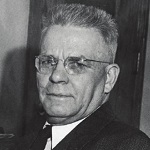As an elementary school teacher, my wife finds great fulfillment in helping her sixth graders improve their math skills. But she almost always has to deal with a few students who moan about having to learn new things. They lack the patience to correct their mistakes and practice until they’ve achieved mastery. Their impatience in turn tries the patience of their teacher.
At church, at home, and in the workplace our impatience can start to feed on the impatience of others. Since none of us have the patience of Job, all of us try each other’s patience. Stopping this vicious circle requires a little more patience from all of us. This means being willing to give others – and ourselves – time to change.
Of course, patience is not always a virtue. Sometimes teachers need to send disruptive students to the principal’s office. Sometimes we need to seize the day and take immediate action. Justice, courage, and kindness often call on us to make a difference without delay.
But it goes without saying that most of life’s challenges require patience. It takes patience to accomplish worthwhile goals. It takes patience to face unexpected trials such as serious illness, financial setbacks, and failed relationships. It takes patience to deal with life’s daily problems, including backed up freeways, bad weather, and slow lines at the grocery store.
One of the obstacles to developing patience is that our modern world caters to convenience and immediate gratification. We don’t need to grow a garden when we can pick up whatever we need from a convenience store. We don’t need to spend our time with home-cooked meals when restaurants and pre-packaged meals are always available. We don’t need to save up money to buy a new car when we can get a low-interest loan and buy it now. We don’t need to wait a week for our favorite television show when we can watch the entire series over the weekend on Netflix. And we don’t need patience to travel a thousand miles when we can hop on a plane and be there in a couple of hours.
So how can we cultivate patience in an impatient world? Here are ten tips.
The first two are taken from a 2017 journal article published in the Psychology of Religion and Spirituality by Sarah Schnitker and her colleagues at Fuller Theological Seminary.
1. Attach meaning to suffering.
Schnitker describes how religious communities generally promote the idea that some forms of suffering can be redemptive, leading to self-mastery, empathy, and greater life-fulfillment. This is what she calls a “transcendent narrative identity.” It provides the strength to look beyond present suffering and work toward a future where our lives have changed for the better.
2. Learn to control your emotions.
Schnitker and her fellow psychologists identify emotional regulation as another core aspect of patience. It’s easy to become frustrated, annoyed, and even bitter when things don’t go our way. But acting on negative emotions almost always makes situations worse. When I start to get impatient, I try to imagine how I would respond in my present circumstances if I were patient. Every once in a while, this sort of cognitive reappraisal helps me respond more calmly with a long-term perspective.
3. Look to nature for inspiration.
Ralph Waldo Emerson offers this advice: “Adopt the pace of nature: her secret is patience.” It takes time to develop a strong root system that can support sturdy branches and bear fruit. We’re more likely to develop patience when we understand that disappointment and heartache can make us more capable of tasting the fruit of happiness in the future.
4. View patience as a golden mean
Aristotle helpfully describes most virtues as the golden mean between two extremes. For example, true courage is found somewhere between cowardice, on one hand, and recklessness, on the other. In a similar way, possessing patience means that we avoid foolish, impetuous actions. But it also means that we avoid a passive or lazy acceptance of suffering, injustice, and mediocrity.
5. Be humble enough to take small steps
For me personally, patience implies the willingness to take small steps to improve my life and the lives of those around me. Building a business, raising a family, and getting an education are made up of little things that add up over a long period of time. This same principle applies to recovering from the emotional wounds caused by unhealthy relationships. Shakespeare’s Othello explains it best: “How poor are they that have not patience! What wound did ever heal but by degrees?”
6. Be consistent in taking the small steps
In working toward an ambitious goal, I find that I need to set aside non-negotiable time every day, even if it’s just a few minutes, to do something concrete. If I go more than a day or two without taking any steps toward realizing my goal, the future that I had envisioned grows dim and I begin to lose hope. This is one of the reasons why scriptural counsel often pairs patience with diligence.
7. Be a finisher
Because I’m naturally an impatient person, I tend to get discouraged and move on to something else when I don’t see results as quickly as I’d like. This brings up the importance of personal commitment. Devote yourself to worthy causes and see your projects through to the end. Knowing that you’re a finisher can help you stay the course.
8. Don’t try to control other people
Self-mastery is one of the cornerstones of a happy life. We need to control our emotions, our thoughts, and our actions. But one of the surest paths to unhappiness is trying to control other people. Persuade family members, friends, and strangers through your example. Then give the people you love room to change. Try to remain pleasant and never give up on them.
9. Remember how tough you are
Patience is more about toughness than weakness and passivity. When life gets overwhelming, remind yourself of the many challenges and difficulties you’ve overcome in the past. You’ll find hidden strength and happiness if you just keep moving forward.
10. Cultivate hope for a brighter future
Patience is much more than a willingness to endure suffering. It’s about believing in a brighter future that comes one small, imperfect step at a time.




 In a 1960 address to college educators, my great-grandfather P.A. Christensen conveyed his gratitude for the animating presence of light and truth in human society. The classic works of literature and the enduring truth inspired by nature were for him “unearned” gifts that found their expression in the lives of ordinary people. These gifts impact the quality of our lives within the immaterial “realm of human growth and transcendence,” leading to character development and social harmony.
In a 1960 address to college educators, my great-grandfather P.A. Christensen conveyed his gratitude for the animating presence of light and truth in human society. The classic works of literature and the enduring truth inspired by nature were for him “unearned” gifts that found their expression in the lives of ordinary people. These gifts impact the quality of our lives within the immaterial “realm of human growth and transcendence,” leading to character development and social harmony. Aristotle explains that a magnanimous man believes he deserves great things such as honor and respect because he really does deserve them. He is great both in the sense that he has obtained a fullness of virtue and in the sense that he possesses wealth, power, and influence. His abundant resources allow him to do much more good for others than they could do for him. While he willingly accepts legitimate honors bestowed by noble men, he has no interest in arrogantly displaying his superiority among ordinary people. In fact, he is self-effacing and unassuming among them. It is only in the presence of distinguished, influential men that he speaks openly of his accomplishments. Nonetheless, he is always more concerned with promoting truth and virtue than he is with impressing other people.
Aristotle explains that a magnanimous man believes he deserves great things such as honor and respect because he really does deserve them. He is great both in the sense that he has obtained a fullness of virtue and in the sense that he possesses wealth, power, and influence. His abundant resources allow him to do much more good for others than they could do for him. While he willingly accepts legitimate honors bestowed by noble men, he has no interest in arrogantly displaying his superiority among ordinary people. In fact, he is self-effacing and unassuming among them. It is only in the presence of distinguished, influential men that he speaks openly of his accomplishments. Nonetheless, he is always more concerned with promoting truth and virtue than he is with impressing other people. One of Ralph Waldo Emerson’s favorite themes is that each individual must discover and embrace his or her personal calling in life. Each person “has faculties silently inviting him thither to endless exertion…. He inclines to do something which is easy to him, and good when it is done, but which no other man can do. He has no rival. For the more truly he consults his own powers, the more difference will his work exhibit from the work of any other. His ambition is exactly proportioned to his powers.…Every man has this call of the power to do some[thing] unique, and no man has any other call….”
One of Ralph Waldo Emerson’s favorite themes is that each individual must discover and embrace his or her personal calling in life. Each person “has faculties silently inviting him thither to endless exertion…. He inclines to do something which is easy to him, and good when it is done, but which no other man can do. He has no rival. For the more truly he consults his own powers, the more difference will his work exhibit from the work of any other. His ambition is exactly proportioned to his powers.…Every man has this call of the power to do some[thing] unique, and no man has any other call….”

 As the virtue that most impacts human relationships, benevolence is an indispensable catalyst for change. In Strength to Love, Martin Luther King states, “Returning hate for hate multiplies hate, adding deeper darkness to a night already devoid of stars. Darkness cannot drive out darkness; only light can do that. Hate cannot drive out hate, only love can do that.” Dr. King’s call for change through nonviolent resistance is grounded in the principle of love, which has the power to destroy the forces of evil and establish justice.
As the virtue that most impacts human relationships, benevolence is an indispensable catalyst for change. In Strength to Love, Martin Luther King states, “Returning hate for hate multiplies hate, adding deeper darkness to a night already devoid of stars. Darkness cannot drive out darkness; only light can do that. Hate cannot drive out hate, only love can do that.” Dr. King’s call for change through nonviolent resistance is grounded in the principle of love, which has the power to destroy the forces of evil and establish justice.